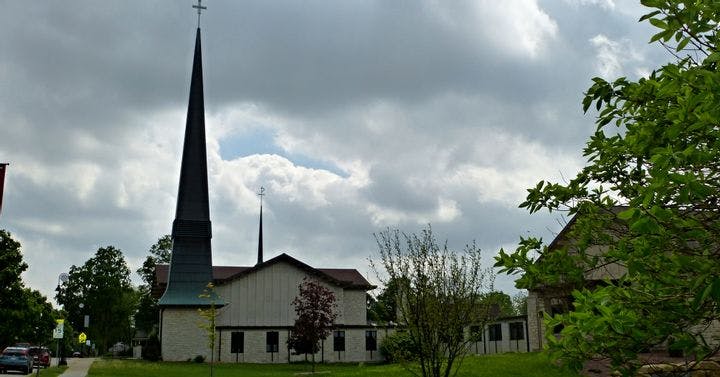Fall 2011
God's Experts
– Kevin M. Schultz
To those on the outside, America’s evangelical community might look like an uneducated mass of people who subscribe to beliefs that defy common sense.
To those on the outside, America’s evangelical community might look like an uneducated mass of people who subscribe to beliefs that defy common sense. And we know very little about who has done the spadework for these ideas—including the notion that America has a Christian mission to fulfill and the belief that the Earth was created in six days.
In The Anointed, Randall J. Stephens and Karl W. Giberson, professors at evangelical Eastern Nazarene College near Boston, draw a fascinating group portrait of today’s most popular intellectual leaders among evangelicals and attempt to explain why so many of the faithful buy their arguments. While it is clear that the authors are baffled and even frustrated by many of their cobelievers, they strive to be dispassionate and fair. Most of the time they succeed.
Texan David Barton is perhaps the most visible of these leaders. He heads a media empire that reaches millions of radio listeners and was a regular guest on Glenn Beck’s television talk show until it went off the air earlier this year. Barton, who has the ears of a number of conservative politicians, interprets American history to comport with the idea that the United States is a “Christian nation.” The Founders never intended to erect a high wall between church and state, according to Barton, and secular historians have sought to obscure the evidence of God’s role in American affairs throughout history.
Then there’s Ken Ham, an Australian émigré and former high school science teacher who has had a large hand in promoting creationism. Ham delivers dozens of lectures a year in which he amplifies on this concept, offering such pseudoscientific details as an explanation of how Noah’s flood jumbled the fossil record so that it’s impossible to know which animals lived on earth when. His books feature prominently in homeschooling curricula, and, at his Creation Museum in Petersburg, Kentucky, thousands of visitors each month view displays of young children playing with dinosaurs.
The authors also profile Christian psychologist James Dobson, founder of the vast organization Focus on the Family, and the late televangelist Jerry Falwell. Both have advocated child-rearing principles from the Bible—including the famous dictate that to “spare the rod” is to “spoil the child,” based on several verses in Proverbs—and have suggested that wives should submit to their husbands on the model of biblical patriarchy.
For the most part, these leaders have dubious credentials. Though Barton is often referred to as “Dr.,” for instance, his only advanced degree is an honorary doctorate from Pensacola Christian College. Dobson has a PhD in child development from the University of Southern California—but he hasn’t published in a mainstream professional journal since the mid-1960s.
The question that animates The Anointed is why so many people believe these guys (they’re all men) when there are highly credentialed evangelicals competing to be heard. The authors cite with admiration Mark Noll, an evangelical historian at the University of Notre Dame who, in 1994, wrote a book decrying evangelical anti-intellectualism, The Scandal of the Evangelical Mind. And why give credence to Ham’s theories about how life started when you could listen to evangelical Christian Francis Collins, the former head of the Human Genome Project and the current director of the National Institutes of Health?
Men such as Ham and Barton have been “anointed,” in part, because they offer easy-to-grasp answers delivered with conviction. More important, they employ us-versus-them rhetoric, castigating those who disagree with them as mortal enemies trying to ensnare the righteous. But the real key to their success, Stephens and Giberson suggest, may be the nearly airtight “parallel culture” that evangelicals have created in America. They have their own curricula, publishing houses, music industry, and social spaces, such as Christian bookstores. Outsiders are hardly heard, and those within who disagree with cherished narratives are looked on with suspicion. NIH director Collins may be an evangelical, but in advocating evolution he suffers from a bad case of secular-itis.
The authors present the story of one young evangelical who felt constrained by this parallel culture until he transferred from a fundamentalist college to Gordon College, a liberal Christian institution in Massachusetts where his questions were welcomed, not quashed. One of the principal virtues of The Anointed is that it represents an effort to demonstrate that the evangelical community is not a monolith of the unthinking. Yet if that were as true as the authors hope, they probably would have felt less pressed to write this book.
* * *
Kevin M. Schultz, an assistant professor of history and Catholic studies at the University of Illinois, Chicago, is the author of Tri-Faith America: How Catholics and Jews Held Postwar America to Its Protestant Promise, published earlier this year.
Reviewed: The Anointed: Evangelical Truth in a Secular Age by Randall J. Stephens and Karl W. Giberson, Belknap/Harvard, 2011, 356 pp.
Photo courtesy of Flickr/Ali Eminov
